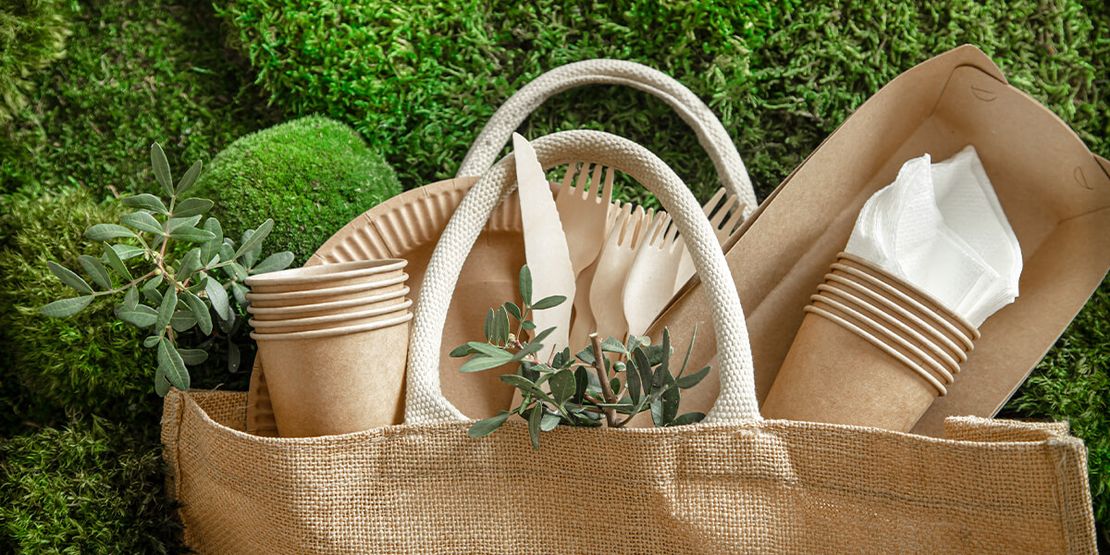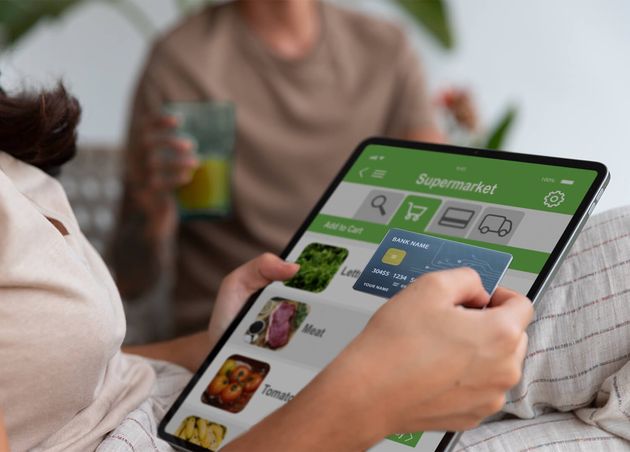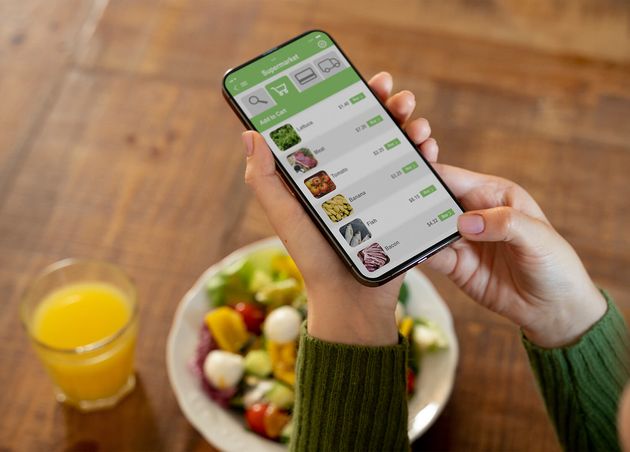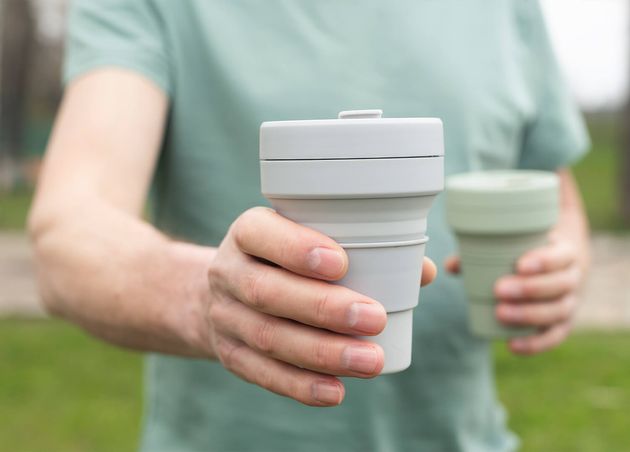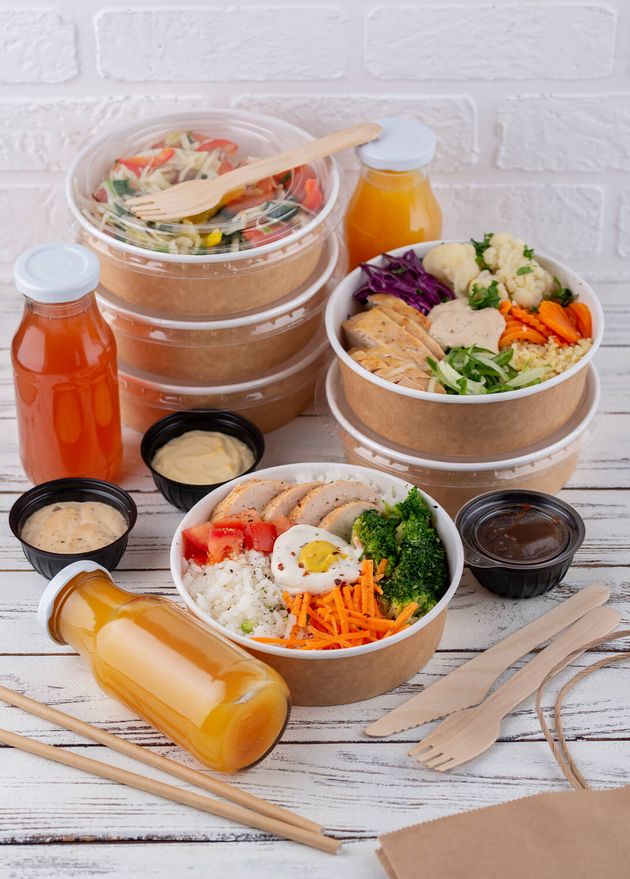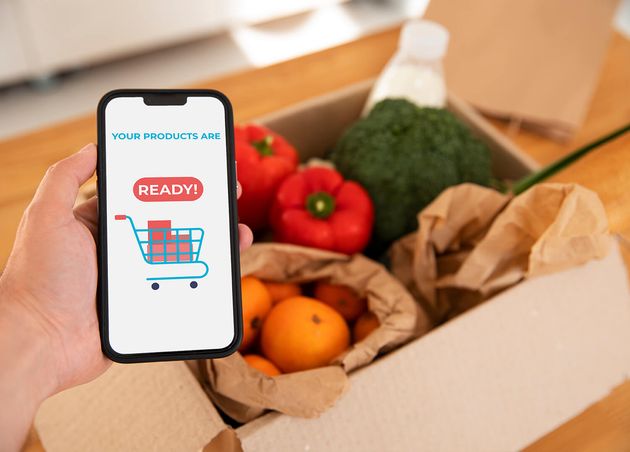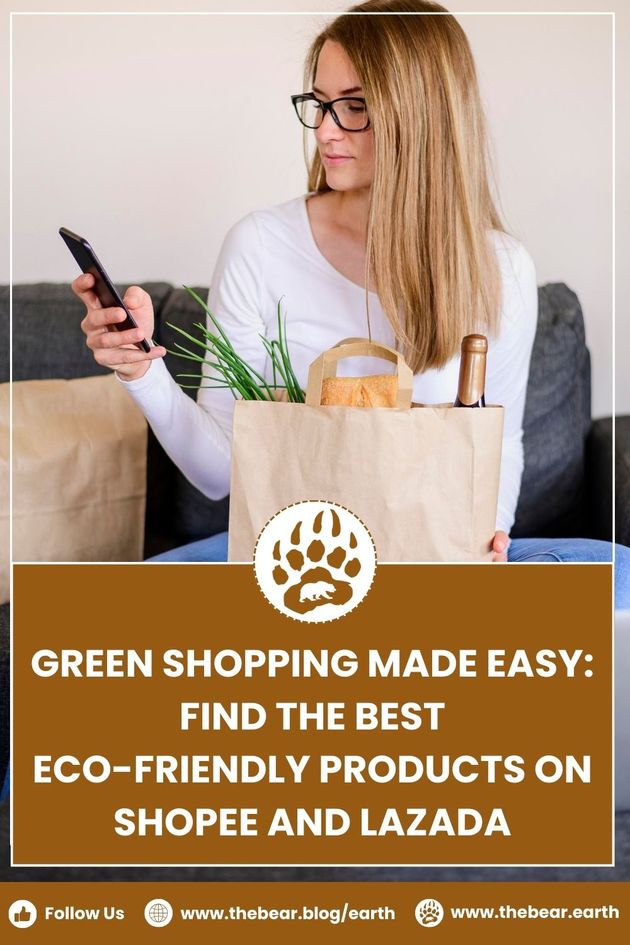Green Shopping Made Easy: Find the Best Eco-Friendly Products on Shopee and Lazada
In reaction to sustainable consumption and production, today's customers are more conscious of how their actions influence the environment. As a result, people are increasingly choosing environmentally friendly items that follow sustainable techniques. We can refer to online platforms as an ideal channel to reach such products in the digital era.
Meanwhile, e-commerce businesses are also helping to promote environmentally friendly behaviors among their customers, a sizable part of whom are prepared to spend extra on sustainable products and services.
In this way, they work to produce products necessary for consumers' daily lives through environmentally friendly materials. The uniqueness of this is that these items can be recycled after use.
So, would you like to know more about this green shopping that is needed in today's society? Then this is the ideal chance for you. Get the knowledge you need without missing a single word.
🌏 Eco Fact!
Environmental awareness has caused a significant shift in the economy in recent decades.
Discovering Eco-Friendly Stores for Sustainable Shopping
When it pertains to customers, people examine a variety of criteria, many of which are frequently personal, before selecting to purchase with their favorite company. Customers are increasingly interested in purchasing sustainable, green, and organic items, and they are actively looking for retailers and manufacturers who employ ecologically friendly practices.
In today's retail landscape, consumers are willing to spend extra money on products and services provided by businesses that show a responsible commitment to making a positive social and environmental impact.
Lazada: Your Online Shopping Destination
Lazada Group, formed in 2012, is the leading eCommerce platform in Southeast Asia. Trade and technology drive growth in Indonesia, the Philippines, Malaysia, Singapore, Thailand, and Vietnam. Lazada is a part of their consumers' everyday lives in the area, with the largest logistics and payment networks, and they aspire to service 300 million shoppers by 2030. Since 2016, Lazada has served as Alibaba Group's, backed by world-class technological support.
Lazada's continually growing technology, logistics, and payment infrastructure links this vast and varied area, providing Southeast Asia with a safe, seamless, and delightful shopping experience. Nothing is still at Lazada. They are always a few steps ahead of the expectations of discriminating buyers and ambitious retailers.
Generally, Lazada has become a prominent online marketplace in Southeast Asia, offering clients diverse items, safe payment solutions, and simple shopping experiences.
Shopee: Your Ultimate Online Shopping Platform
Shopee, founded in 2015, is the top e-commerce platform in Southeast Asia and Taiwan. It offers opportunities to tens of millions of customers, a simple, safe, fast, and enjoyable online shopping experience. It provides a diverse product offering backed by integrated payments and easy fulfillment. Shopee is committed to assisting brands and sellers in their e-commerce success and specializes in its operational area.
They believe in technology's revolutionary potential and aspire to link consumers and sellers inside a community characterized by three fundamental characteristics: Simple, Happy, and Together. Shopee is one of the world's most well-known and renowned brands because it was named the top e-commerce brand and sixth overall in YouGov's "Best Global Brands" in 2022.
Shopee is a subsidiary of Sea Limited (NYSE: SE), a multinational consumer internet corporation. Sea aims to use technology to improve the lives of customers and small companies through its three primary businesses: Shopee, Garena, and SeaMonkey. Shopee has started Shop Green online sales to encourage Filipinos to embrace environmentally friendly items. The deal will go through April 25 and include brands including Klean Kanteen Philippines, Messy Bessy, and Unilever.
Reducing the Carbon Footprint of Online Retail
E-commerce is having a golden year because of shifts in consumer habits amid the Covid-19 health crisis. As per the 2022 e-Conomy SEA study edition, issued last month by Google, Temasek, and Bain and Co., e-commerce in Southeast Asia is expected to conclude the year as a US$131 billion business, up from US$43 billion in 2019. According to the analysis, the region's digital economy is predicted to triple its greenhouse gas emissions by 2025, partly due to e-commerce growth. Direct emissions are defined as Scope 1 (emissions from direct activities) and Scope 2. In contrast, indirect emissions that affect their value chain are classed as Scope 3.
ESG reports issued by the region's three leading online retailers (Lazada, Tokopedia, and Shopee) or their parent firms demonstrate that they are beginning to address the environmental effects of their operations, focusing on minimizing packaging waste and emissions. Shopee's parent business, SEA Ltd, released 112,014 Tons of CO2 emissions last year, with electric consumption accounting for three-quarters of that total. The balance was derived from company-owned cars, refrigerants, and heaters. The study does not cover Scope 3 emissions.
Lazada, for its part, did not specify how much carbon emissions it creates in its debut ESG report, which was issued last October, but did say that around 60% came within Scope 3. Another 38% are direct emissions from firm resources, while the remainder are accounted for by power use. Decarbonization plans for online merchants focus on activities directly within their control. For example, Lazada plans to reduce Scope 1 emissions by transitioning company-owned fleets in Indonesia to electric motorbikes with battery swap capability for long-distance delivery.
In highly populated regions, Lazada also uses cargo bikes for last-mile delivery. Lazada also has an electric scooter delivery fleet in Vietnam that can deliver more than 100 items, with each charge lasting 20 kilometers. Another popular activity is reducing plastic waste, with corporations initiating programs encouraging paper packaging to replace plastic wrapping. Lazada, for example, has a Fulfilled by Lazada logistics service that offers brands two alternative packaging options: Eco, which uses FSC-certified boxes with shredded fillers from recycled carton boxes instead of plastic cushions and bubble wrapping. The other is Zero, which uses comparable containers with paper tape.
Shop Eco-Friendly Products
Their household product usage has grown since most of us quarantined at home. Unfortunately, many daily necessities, such as toothbrushes, shampoos, and cleaning supplies, include hazardous chemicals that harm the ecosystem. Fortunately, more companies have created sustainable items they may use as substitutes.
Disposable cutlery, straws, and plastic water bottles are convenient on the road. Still, they're also harmful to the environment. All of these single-use plastics wind up in landfills or rivers. However, even replacing these things with more sustainable alternatives is a significant start toward positive change. Do not utilize them; invest in reusable goods that will last you for generations.
#1 Reusable Bags
A list of eco-friendly items would be incomplete without reusable shopping bags such as eco bags. But, to be frank, most of us wouldn't be caught dead carrying them about - whoever developed them certainly didn't consider aesthetics.
Shopee Philippines, fortunately, provides attractive foldable shopping bags that will keep you looking chic while going green. Grab a handle on these handy folding carriers that are tiny enough to fit in your pocket. These sustainable bags are also quite useful, featuring a biodegradable and strong fabric composition.
#2 Eco-friendly Drinking Straws
Metal straws have become one of the most popular eco-friendly goods in recent months, bolstered by campaigns from numerous eateries to wean consumers off plastic straws. There is also a genuine impact on lowering straw consumption. You should realize that using plastic straws generates garbage that will take millions of years to decompose.
Get some foldable silicone straws to save the environment and space in your purse! These are super lightweight and come in adorable colors that make you smile. If you are concerned about using a reusable straw that is not clear, you will appreciate the transparent glass straws.
These lovely straws are see-through, allowing you to tell whether the straw is filthy. Take a sip from these wonderfully portable, elegant, glass reusable straws, and you'll be one step closer to living sustainably.
#3 Eco-friendly Cups
Consider bringing your cup or tumbler if you enjoy going to coffee shops for your daily caffeine fix. Because purchasing a throwaway cup every day generates around 10 kg of garbage every year. Begin your day well with KeepCups, the world's finest barista-standard reusable cup of lightweight plastic. Alternatively, choose the environmentally friendly silicone-based, collapsible Stojo.
#4 Reusable Containers
Depending on your needs, there are several food container alternatives. If you want to preserve stale biscuits or cereal, choose airtight Lock & Lock food containers. A glass jar and warming bag are ideal for frequently taking soup or other hot foods.
Aside from containers, disposable silicone food-storing bags are ideal for keeping fruits, nuts, and other foods. These bags that can be reused are both microwave and dishwasher-safe, making them even more practical for our hectic lifestyles. Several food storage methods available will adequately suit your requirements and habits.
Find the Best Eco-Friendly Products on Shopee and Lazada
Over the past few years, Lazada and Shopee have been working hard and committed to promoting sustainability. They promote and sell green shopping through e-commerce and motivate people to buy more favorable products. A better message is also issued to society and the whole world.
All in all, the best way to lead a sustainable lifestyle is to start very simply. That means not taking significant steps in one day but taking small steps consistently. Be sure to reduce your carbon footprint by choosing these unique eco-friendly products.
If you're determined and ready to take your efforts to the next level, never hesitate to live a fully sustainable life. Because it affects not only your development but also the future existence of the entire world.
Recommended for you
Best Healthcare Facilities in Thailand: Everything You Need To Know
Dr. Theodore (Professor Bear)
Kanchanaburi: The Complete City Guide
Dr. Theodore (Professor Bear)
Travel to Pattaya: Day 2 Trip to See the Cultural Attractions
Shane, The Bear Traveler


